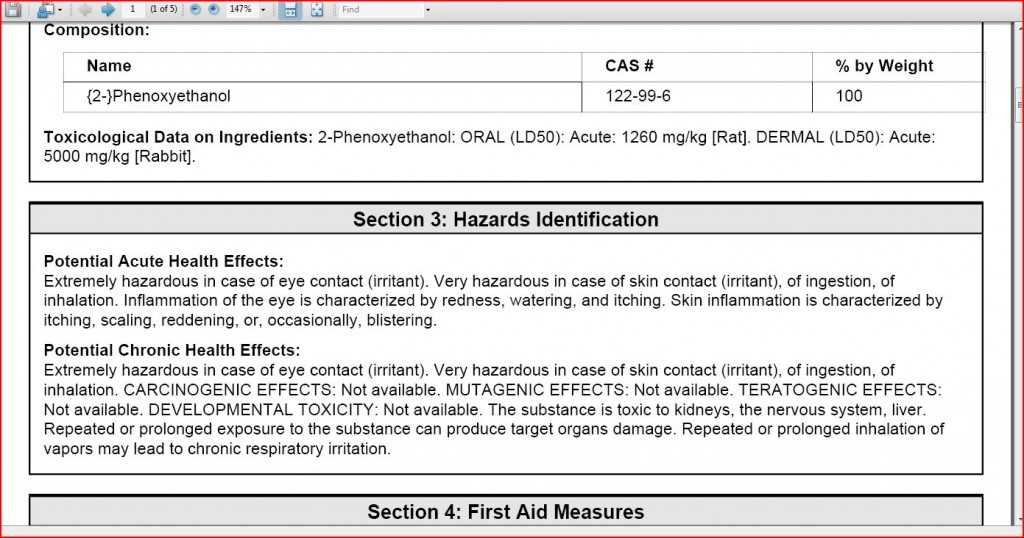Parabens have pretty much been black-listed in the public’s mind at this point. But what are companies doing to get rid of them? What alternatives have they chosen? Have you noticed? What do you see on your labels?
Some companies insist that paraben concerns are unproven, hype-based fears, and they continue to use this family of synthetic preservatives in their formulations. Methyl, ethyl, propyl, and butyl paraben.
Some companies are removing parabens not for the sake of human health, but rather brand health. The mounting evidence against these ingredients hasn’t convinced them – they just want their products to keep selling, and they know that parabens are a pox on their products that will lead to declining sales and brand death if not addressed.
Still other companies have carefully considered the growing research (see Breast Cancer Fund for a brief summary) and have responsibly chosen to remove parabens from their formulations.
But what are they doing differently instead of using parabens? Are they finding ways to create quality, shelf-stable products without the use of synthetic preservatives?
Sadly, in most cases, the answer is no. The vast majority of companies who have removed parabens from their formulations, and now proudly display “paraben free” in their marketing, have simply chosen to replace them with other synthetic preservatives.
Read your labels. The most popular paraben replacement that I am seeing on labels these days is phenoxyethanol. But check out the MSDS on this synthetic chemical preservative.
Do you see that? Extremely hazardous to the eyes. Very hazardous to the skin, lungs (when inhaled), and digestive system (when ingested). Toxic to kidneys, nervous system, and liver. And note the words “not available” next to carcinogenic, mutagenic, teratogenic, and developmental effects. Do you know what that means? It means that this data is not available. The studies haven’t been done. Like 89% of the 10,000+ synthetic chemicals used in the personal care industry, phenoxyethanol has not been fully evaluated for safety yet. (For the full MSDS, click here).
To be fair, the MSDS is typically for the folks working with a chemical in large batches at a lab. However, is not daily use, often multiple times a day, also “repeated and prolonged exposure” to an ingredient? As they do with most synthetic chemicals, many formulators will claim that because phenoxyethanol is used in such small amounts in their products, it must be safe. But that’s what they said for decades about parabens, too. Is history going to repeat itself on this issue?
Nowadays we know better. We know that chemicals can have cumulative effects in the body from minute daily exposures over time. We also know that chemicals act on the body in different ways when combined with other chemicals. Even if phenoxyethanol were proven completely safe in isolated studies, research would still need to be done on its combined effects with the other chemical ingredients in the products you use daily. But a quick glance at the current MSDS already shows us that it’s a hazardous material.
I used to believe that synthetic preservatives were necessary for product stability. And for years, it was a trade off I was willing to accept as a customer because naturally occurring molds and rancidity are certainly not safe for my family either. Most truly natural options I had seen, including DIY (do it yourself), were prone to going funky halfway through the jar or bottle. And if it were still the case today that there was really no way to have a shelf-stable, quality product without synthetic chemical preservatives, I’d probably say to myself, “Well, OK, if this is the best option, I guess I’m not going to obsess and worry about it.”
But the truth is, thanks to advances in ‘green’ chemistry, today there are options out there that are completely free of synthetic preservatives and still have a great shelf-life. And there have been for years now, it is just taking time for this information to get out there and combat the chemical fairy we’ve been listening to and trusting for decades. The educational and product development efforts of Miessence first opened my eyes to this fact, and a relative handful of other companies are now following their lead to move in this totally different direction, swimming upstream against the masses who are simply looking for a more socially-acceptable (because we don’t yet recognize the ingredient names), quick-fix, synthetic ingredient swap.
Instead of choosing products that have merely swapped one hazardous, synthetic ingredient for another, look for the brands that have gone above and beyond the use of synthetic chemical ingredients. If other effective, truly natural choices now exist, the precautionary principle would ask, “Why risk it?”
